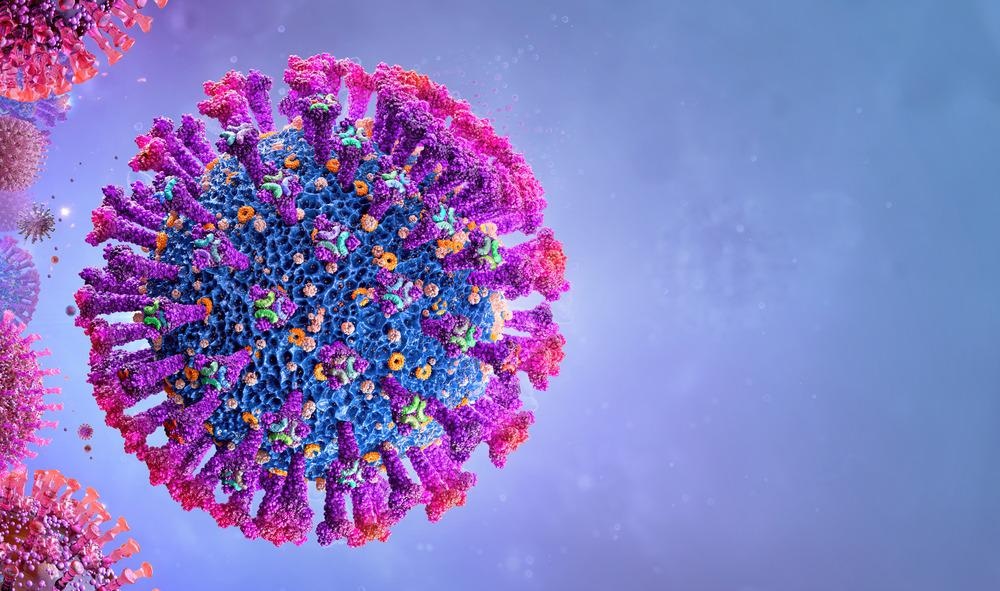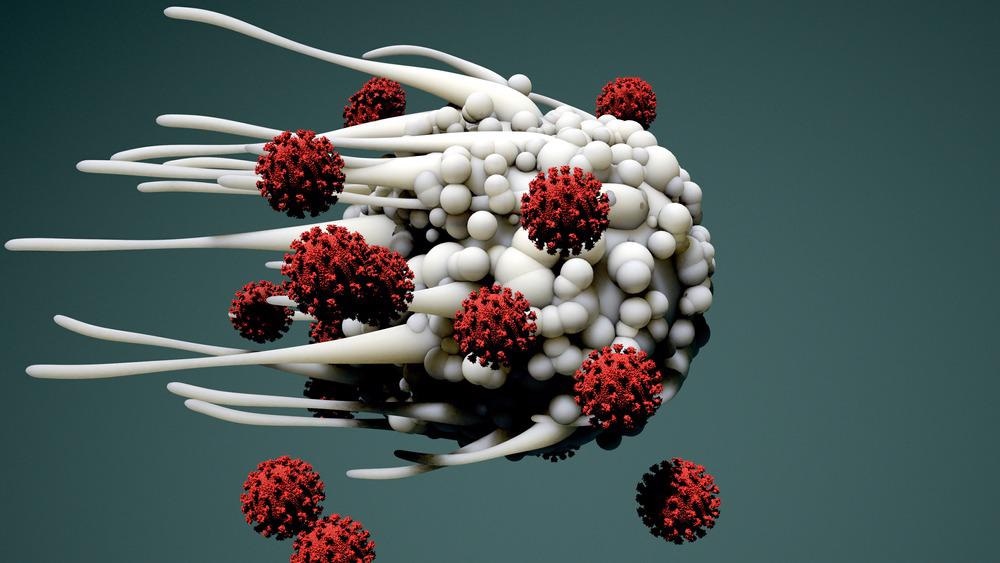The emergence of the severe acute respiratory syndrome coronavirus-2 (SARS-CoV-2) caused a major health crisis initially found in Wuhan, China. This led to the announcement of a pandemic known as coronavirus 2019 (COVID-19) by the World Health Organization in March 2019, resulting in high morbidity and mortality, especially within vulnerable communities such as the elderly and immunocompromised.
While there has been research into the COVID-19 virus, its long-term immunological effects have not been fully comprehended. However, the use of vaccines has aided in decreasing the severity of the virus and reduced the consequences of the pandemic.

Image Credit: Corona Borealis Studio/Shutterstock.com
Immunological Memory Processes
T cells play a significant role in immunity by regulating cellular and humoral or antibody-mediated immune responses. Conventionally, these cells can be distinguished by expressing surface receptors such as CD4 and CD8. They also use clonally variable T cell receptors (TLRs) to recognize antigens from the pathogen.
The use of different effector cell types through T cell differentiation to control the pathogen invading the host cells is important for effective immune responses. Follicular helper CD4+ T cells can be used during viral infections to activate B cells and produce antibodies that can neutralize the pathogen and CD8+ cytotoxic T cells that can destroy the infected cells.
The use of memory T cells is also significant during an immune response. A small number of T cells are preserved for an occasion when individuals are infected with the same pathogen. Effective immune memory has the ability to last for decades and is critical for enhanced immune responses against pathogens which also increases the rate of pathogen control.
This generation of durable and robust T and B memory cells is the goal for vaccines to aid with effective immune responses if an individual comes into contact with a particular pathogen.
Hallmarks of T Memory Cell Responses
Memory T cells can be seen as different from naïve T cells that first encounter a pathogen. These differences can be seen as the hallmarks of the former type due to an enhanced immune response.
The hallmarks of memory T cell responses include having an increased pool of memory T cells that are reactive to the pathogen via specific recognition of antigens from the pathogen through the T cell receptor. Additionally, T memory cells also produce a faster and more powerful response to a pathogen that is being encountered for the second time.
The use of these cells also includes pre-programming to produce a “tailored” set of effector cell types optimized to fight the pathogen, which includes recalling follicular helper CD4+ T cells that aid in enhancing the humoral response.
The presence of these memory cells within barrier tissues is also useful for advanced immune responses due to its rapid detection and subsequent infection control responses. Memory cells are also found within non-lymphoid tissues such as lungs, but these cells, known as resident memory T cells, do not exchange with populations within the circulation.
T memory cells are brought about by both natural infection as well as deliberate vaccinations and are an effective tool for reducing infection levels for various diseases.

Image Credit: Design_Cells/Shutterstock.com
COVID Immunity: Does It Last?
Research into SARS-CoV-2 has found memory T cell generation and responses that occur in patients experiencing the infection naturally, with possible implications for natural immunity that vaccines also aim to provide.
Current studies that have investigated the response to natural COVID-19 infection and vaccines have focused on producing high-affinity neutralizing antibodies. Once these antibodies are generated, long-lived plasma cells have the potential to produce antibodies for decades, even without re-encountering the antigen.
The passive transfer of neutralizing antibodies to decrease viral load can be a promising therapeutic approach in clinical trials. However, this has caused the question of the significance of T memory cells for durable protective immunity against this virus to come under question.
T memory cells can still be seen as being relevant and significant with challenges being faced by a possible inadequate generation of antibodies and even a lack of persistence of neutralizing antibodies, which could decrease the efficacy of serological immunity against the COVID-19 virus.
The evidence for this can be found in another coronaviridae family member, SARS, or SARS-CoV-1, which occurred between 2002 and 2004, with a study confirming the presence of anti-SARS T cells two decades later, while anti-SARS circulating memory B cells as well as antibodies were found to be below the limit of detection.
Additionally, the National Institute of Health has relayed information from an immunology study that found 95% of COVID-19 recovered patients have retained immune memories of the virus up to 8 months after the infection. Memory B cells were higher six months after the first symptoms were established compared to the first month. This rate only plateaued instead of decreasing, and levels of virus-specific T cells also remained high after the infection.
Immune memory plays a significant role in reducing infection and ensuring a strong response upon the second occurrence – critical for disease control. The natural response to the SARS-CoV-2 virus was strong, and researchers are hopeful this pattern of responses lasting over time would also be found for vaccine-induced responses.
Sources:
- Netea, M. and Li, Y., 2021. Immune memory in individuals with COVID-19. Nature Cell Biology, 23(6), pp.582-584. Available at: https://doi.org/10.1038/s41556-021-00689-8
- Jarjour, N., Masopust, D. and Jameson, S., 2021. T Cell Memory: Understanding COVID-19. Immunity, 54(1), pp.14-18. Available at: https://doi.org/10.1016/j.immuni.2020.12.009
- National Institutes of Health (NIH). 2022. Lasting immunity found after recovery from COVID-19. [online] Available at: <www.nih.gov/.../lasting-immunity-found-after-recovery-covid-19> [Accessed 11 February 2022].
Further Reading
Last Updated: Jul 25, 2022